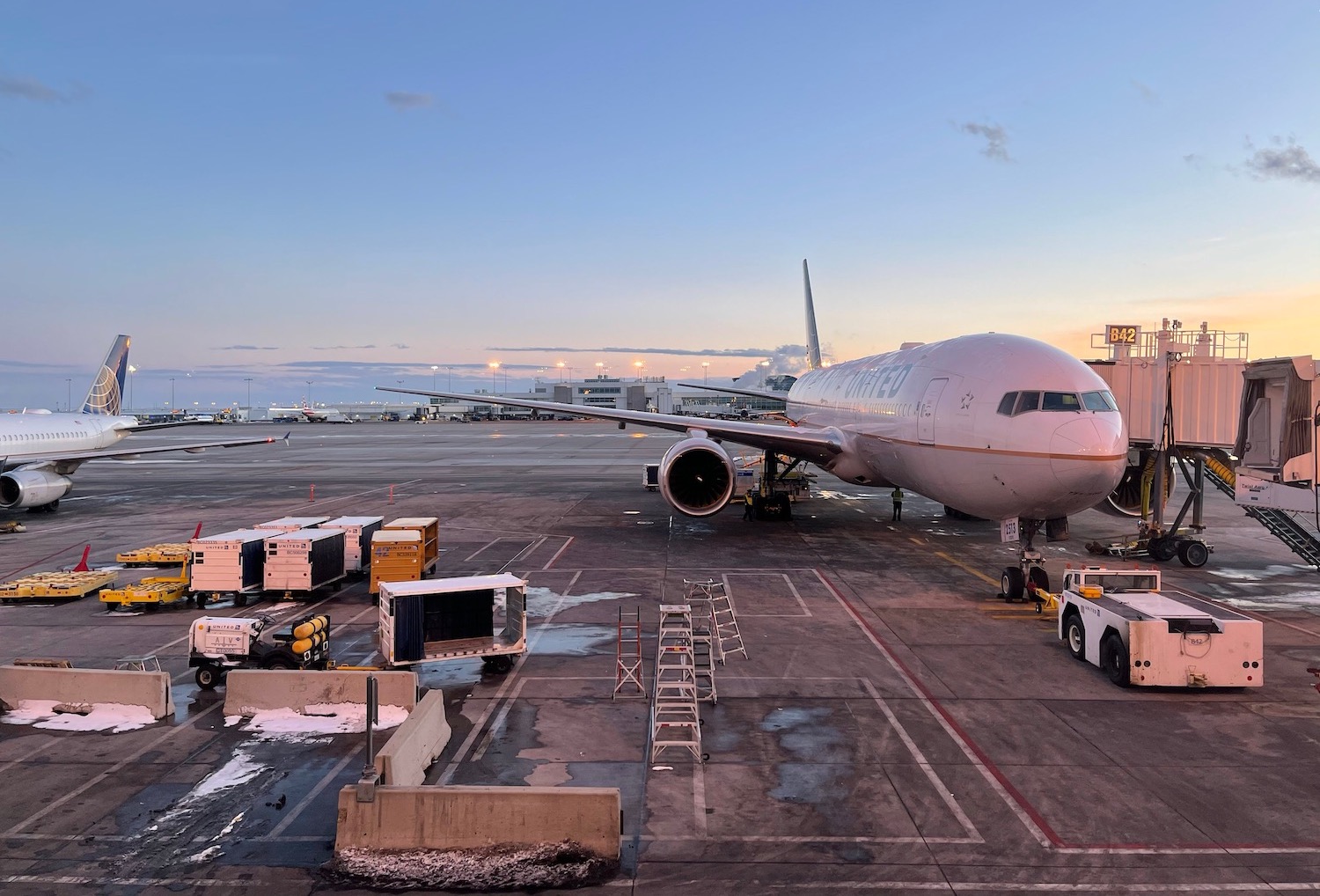
The U.S. Federal Aviation Administration has grounded a number of Boeing 777 aircraft which use Pratt & Whitney PW4000 engines and ordered thermal imaging inspections to check for stress cracks.
FAA Grounds 777 – Orders Thermal Inspections
In an emergency airworthiness directive issued late Tuesday night, the FAA ordered all aircraft with Pratt & Whitney PW4000 engines to undergo inspection and stress testing prior to returning to service.
The FAA is taking this action as the result of a fan-blade failure that occurred Saturday on a Boeing 777-200 that had just departed from Denver International Airport. Although the aircraft landed safely, the failure resulted in damage to the engine, an in-flight engine fire, and damage to the airplane.
After reviewing the available data and considering other safety factors, the FAA determined that operators must conduct a thermal acoustic image (TAI) inspection of the large titanium fan blades located at the front of each engine. TAI technology can detect cracks on the interior surfaces of the hollow fan blades, or in areas that cannot be seen during a visual inspection.
As these required inspections proceed, the FAA will review the results on a rolling basis. Based on the initial results as we receive them, as well as other data gained from the ongoing investigation, the FAA may revise this directive to set a new interval for this inspection or subsequent ones.
The directive applies only to U.S. operators of the aircraft. Prior to the UA328 incident, the inspection interval for the engine was 6,500 flight cycles (takeoffs & landings). Depending upon the TAI findings, that may be accelerated going forward.
In South Korea, where both Asiana and Korean Air operate 777s with Pratt & Whitney engines, the inspection interval has already been reduced to 1,000 flight cycles.
For its part, United Airlines already voluntarily removed its 24 777s from service with this engine type on Sunday:
“On Sunday, we voluntarily removed 24 Boeing 777 aircraft powered by Pratt & Whitney 4000 series engines from our schedule. We’ve been working with the NTSB on their investigation and will comply with the FAA’s Emergency Airworthiness Directive to ensure all 52 of the impacted aircraft in our fleet meet our rigorous safety standards.”
Airlines do not have imaging technology to perform these inspections themselves, meaning the fan blades must be shipped to Pratt & Whitney for testing.
CONCLUSION
In its preliminary investigation, the FAA has determined that a fan blade failure led to the engine issue on UA328. It has now grounded all 777s featuring Pratt & Whitney PW4000 engines until the fan blades can be closely inspected.
> Read More:Midair Engine Explosion On United Airlines 777-200 With 231 Passengers Onboard




Not to be nit picking but your header indicates ALL 777’s rather than the 777’s with PW engines, just saying. Now back to point, while there appears to be an issue with the PW engines I think this whole issue is from lack of proper and timely inspections “on the line”. So one has to ask is this something that has happened due to the disruption in normal operations due t the Covid ? Possibly not saying in any form its an excuse. Another surprising part is the CEO is ex USAF who certainly knows/understands preventive maintenance. hell that was driven into us and I did not even go to Colorado Springs !
Fly safe all
I don’t think this has anything to do with COVID as there have been 2 other incidents with Pratt and Whitney engines one on a Japan Airlines flight and another was a United Airlines flight. In both incidents one in early 2020 and the second in 2018 resulted in fan blades breaking off during flight resulting in major damage to the engine. The FAA order stepped up inspections of Pratt and Whitney engines but this is the first time the FAA has issued an AD ordering thermal acoustic imagining. Thermal acoustic imagining allows inspectors to see inside the blade, to essentially seen inside the titanium metal providing them with imagery of minute fractures and stress points that would otherwise go undetected by human eyes alone.
Naaah.,. Everyone would save Boeing from potential litigation. Its the pride of american aviation industry. Nationalism over safety! And money off course…..
You, James, are the one who places Indonesian nationalism over reality. You don’t even allow for the opportunity that it could have been poorly-trained pilots in your nation as well as in Ethiopia that caused the crash, despite a faulty system. Comparative fault.
For the record, as I always note, as a general issue I love your country, the people, and the best coffee in the world.